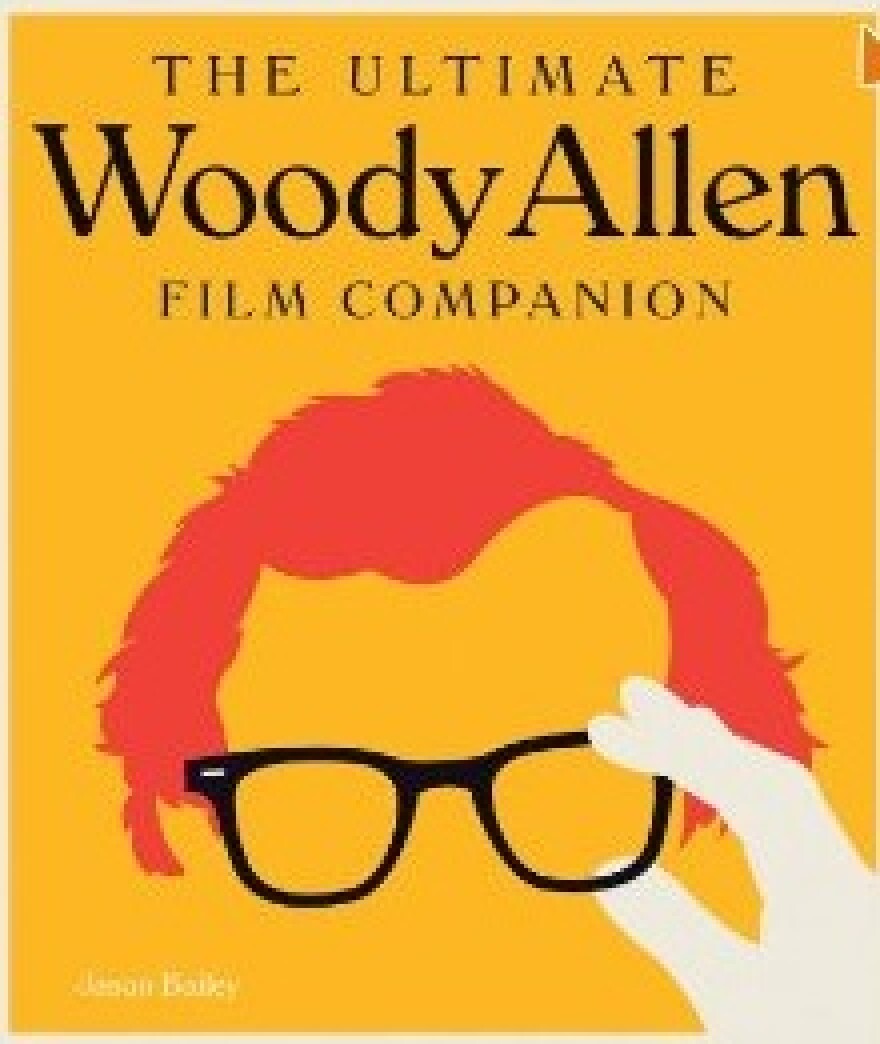
Jason Bailey’s second book, The Ultimate Woody Allen Film Companion, arrives at two critical points in the life of one of America cinema’s most prolific writers and directors. This year marks the 45th anniversary of Allen’s Take The Money and Run and 2015 will mark the film veteran’s eightieth birthday.
“There have been a lot of books about him, a lot of biographies and a lot of critical studies,” Bailey says, “but I could not find an instance where somebody looked at this entire body of work on a film-by-film basis and did the full chronology. There’s also the element, when you’re pitching a book, of ‘What do I want to spend a year of my life on?’ And the idea of getting to revisit those films chronologically and getting to see the growth and chart it. That sounded really attractive to me, sounded like a fun way to spend the time.”
Writing the book meant revisiting Allen’s entire body of work in chronological order—a task that was made easier by the author’s familiarity with his subject.
“I had already seen everything he’d directed at least once because I’ve been a fan since I was a teenager," Bailey says. "Even the bad ones, I’d at least seen once. I revisited everything but it was a total of about 60 films because I saw ones that he had just acted in, some of which I hadn’t seen. A couple of the ones that he only wrote but didn’t direct. I did a full survey of the entirety of the career. I started by watching—there are great DVDs of [him] doing TV appreances on Jack Parr and Hootenanny doing standup. So, I started there and went all the way through, one by one, chronologically. After each film, I wrote the chapter on that film, so I was really writing it for six-eight months and then, when I was all done, I went through and wrote the thematic essays that are sprinkled throughout that deal with the career as a whole.”
Although he was a seasoned fan, revisiting the work provided Bailey with plenty of surprises.
“I remembered loving his segment in New York Stories, thinking it was a real hoot," he says. "I went back and re-watched it for this and it felt very half-baked and incomplete in a lot of ways. It feels even thin for a short film. On the flipside, a lot of the more serious stuff, like Interiors and especially Another Woman that I didn’t have quite the emotional and intellectual weight to fully grasp as an eighteen-year-old—revisiting those for the project was really rewarding. I just really appreciated them as good dramas and they were so starkly different from what he was doing at the time, I think a lot of people didn’t give them their full benefit.”
Although some have criticized Allen for making the same film over and over again, his 1997 feature Deconstructing Harry is an example of a movie that upset longtime fans upon release and yet has managed to have an impressive legacy.
“There was a lot about it that was sort of shocking at the time and, frankly, I think it’s admirable at the time that at the age he was at—30-plus years in moviemaking, he was capable of making a movie that was still shaking people up," Bailey says. "A lot of the language in it and a lot of the subject matter, even the technique of it, he used this really, really rough jump cut editing technique, was sort of off-putting for people at the time. The more distance I get from that film and the more I see it, the more I think it really is one of his best films.”
Controversy over child sexual abuse accusations emerged once more in 2014, raising questions about whether one can separate the artist from the art and Bailey points out that this is an appropriate question to ask when considering Allen.
“That’s the million dollar question," he says. "And, frankly, what’s really interesting is that it is one he has asked himself in the work. We talk about Bullets Over Broadway which came out over 20 years ago now. It’s often thought of as being this sort of light, screwball backstage farce. But that was the film he was writing during his first bout with public controversy. That was during the Farrow breakup and the media circus and the custody battle and all of this stuff. There are all of these interesting questions in it, about the importance of art over humanity and can you separate the art from the artist. And with John Cusack, the question he must ask himself is, ‘If I am not an artist, am I still a great man?’ Ultimately, it’s a personal decision that everyone has to make with the artist. I think it’s valid either way you go with it.
“For me, personally, the book had already been completed when all of this resurfaced. It had been submitted. And we had a moment: Not only will we continue this book but should we continue this book?”
Bailey already has his third book in the works, this time examining another of his longtime cinematic heroes, Richard Pryor.
“I’ve been wanting to write this book for about five years," he says. "I’m really excited to finally get the chance to write it and that there will be a new biopic of him out next year which finally made [the project] commercial. So, yay!”
Jason Bailey’s The Ultimate Woody Allen Film Companion is out now.




